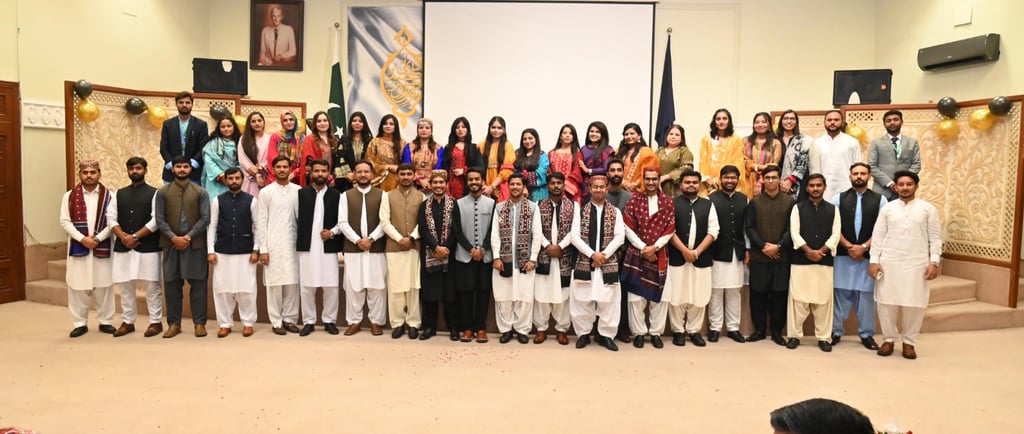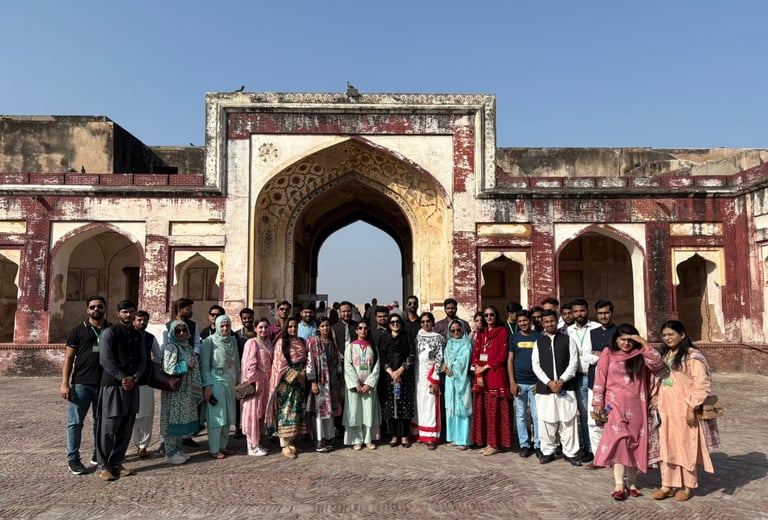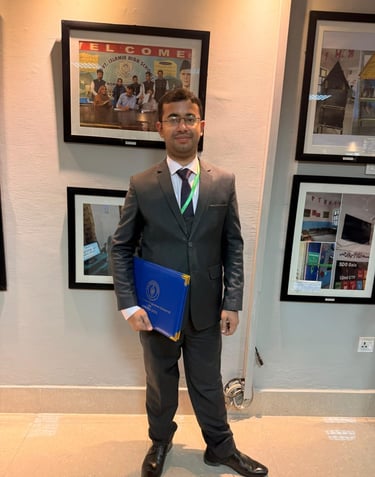Issues of religious minorities in Sindh and impact of CSA's Outreach program
The recent initiative by the Civil Services Academy has given opportunities to minorities from all across Pakistan to learn about the civil services.
Sahil Kumar
11/16/20253 min read


"The test of a society’s progress is not in the wealth it accumulates but in the dignity, safety, and opportunities it provides to its most vulnerable communities."
Sindh, historically known for its cultural pluralism and the cradle of the Indus Valley Civilization, has long hosted diverse religious communities, including Hindus, Christians, Sikhs, Parsis, and others. Despite this rich tapestry, religious minorities in Sindh face persistent challenges that affect their socio-economic, political, and cultural well-being.
Religious minorities in Sindh experience systemic socio-economic disadvantages. According to the Pakistan Bureau of Statistics (PBS, 2023), Hindus make up nearly 8% of Sindh’s population, yet a significant portion lives below the poverty line, particularly in districts like Tharparkar, Umerkot, and Mirpurkhas. Access to education is limited: dropout rates among minority children are higher due to economic constraints, discrimination, and a lack of minority-sensitive curricula. Employment discrimination remains prevalent, with minorities often confined to low-paying, informal jobs such as sanitation, agriculture labor, and small-scale trade, perpetuating a cycle of poverty.
Minority children often face barriers in accessing quality education. Schools in rural Sindh, especially in minority-concentrated areas, suffer from inadequate infrastructure, teacher shortages, and religious bias in curriculum content. Many parents, fearing discrimination or social exclusion, hesitate to enroll their children in local schools, resulting in high illiteracy rates among minority communities. Limited educational attainment directly impacts future employment opportunities, civic participation, and social mobility.
Despite constitutional safeguards, political representation of religious minorities remains weak in Sindh. Reserved seats exist in provincial assemblies, but minority voices are often tokenistic rather than influential in policymaking. Local governance structures rarely provide meaningful participation for minorities, leaving them excluded from decision-making processes that directly affect their communities.
Religious minorities face threats of violence, forced conversions, and harassment. Reports from human rights organizations indicate instances of attacks on minority communities, particularly in rural areas where law enforcement is weak or biased. Discriminatory practices in housing, marriage, and inheritance further exacerbate vulnerability, often leaving minority women and children at heightened risk. The psychological impact of discrimination and insecurity limits community engagement, economic productivity, and social cohesion.
Minorities frequently struggle to freely practice and preserve their cultural and religious traditions. Hindu temples, Christian churches, and other minority places of worship often face neglect or encroachment. Rituals and festivals may be disrupted due to social hostility, impacting cultural continuity. The lack of preservation of minority heritage sites further reflects the broader marginalization of these communities.
"The National OutReach Program Cohort2 participants at CSA.
The impact of National Outreach Program for minorities:
The National Outreach Program (NOP) is a flagship initiative aimed at bridging the gap between marginalized communities, particularly religious minorities, and government institutions. Its core objective is to empower disadvantaged groups by enhancing access to education, health services, legal aid, and vocational training while fostering a sense of inclusion and civic participation.
The importance of NOP lies in its multi-dimensional approach. Firstly, it addresses systemic inequalities by targeting communities that have historically been underrepresented or excluded from mainstream development initiatives. For religious minorities, NOP provides a platform to voice concerns, seek redress for grievances, and participate in decision-making processes. It also creates awareness about constitutional rights, protection mechanisms, and social support schemes, thereby reducing vulnerability to exploitation or discrimination.
In terms of impact, NOP has shown tangible results in improving literacy rates, skill development, and social cohesion. Education campaigns under NOP have increased school enrollment for minority children in rural Sindh, while vocational training programs equip youth with skills for sustainable employment. By promoting interfaith dialogue and civic engagement, NOP fosters tolerance, reduces social tensions, and strengthens national identity. Health outreach initiatives under the program have improved access to maternal care, vaccination, and preventive healthcare in minority-concentrated regions.
Overall, the National Outreach Program serves as a transformative tool that not only enhances socio-economic inclusion but also strengthens democratic values by empowering marginalized communities. Its continued expansion and effective implementation are crucial for ensuring that all citizens, regardless of religion or background, can participate fully in Pakistan’s development journey.






Sahil Kumar completed his National Outreach Program (Cohort 2) from the Civil Services Academy. He is the YEW regional coordinator of Larkana district, Sindh. He has done his bachelors in English Linguistics from University of Sindh.
